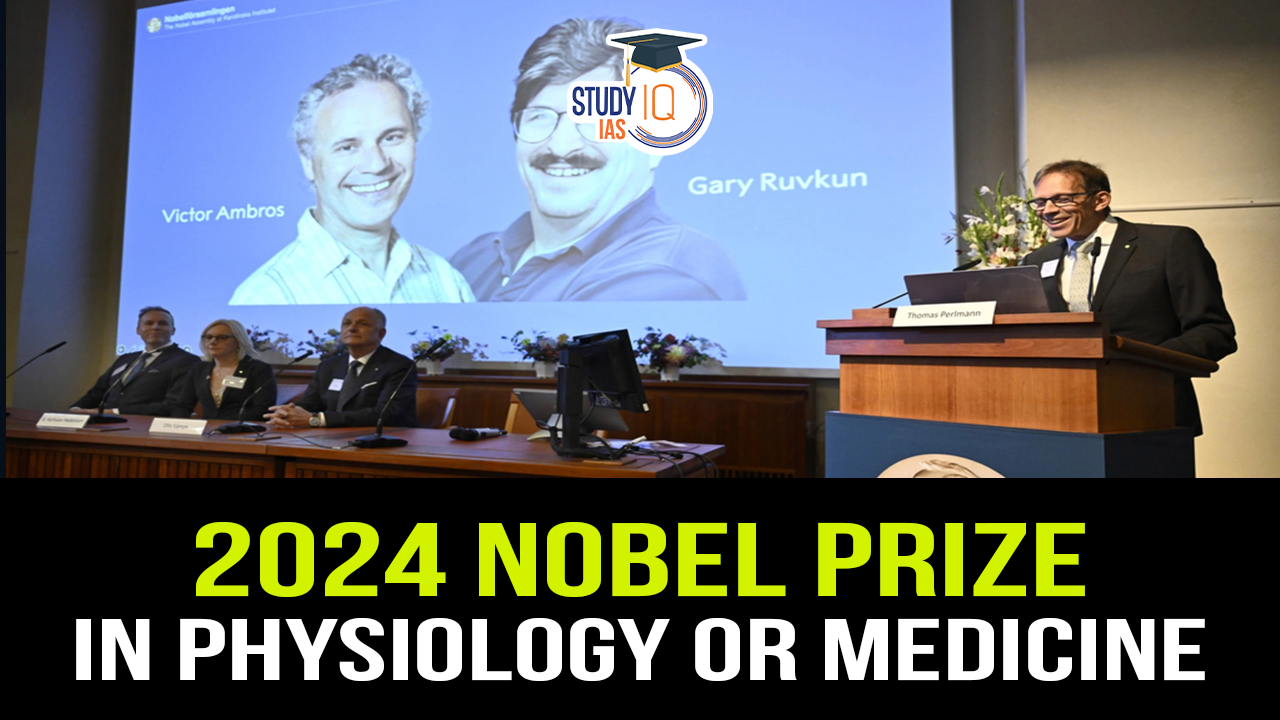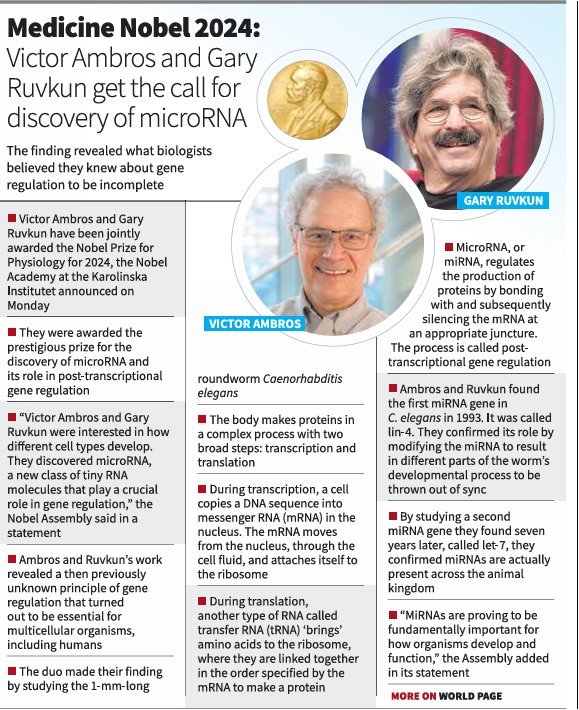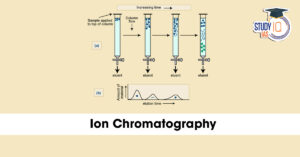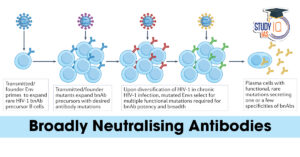Table of Contents
Nobel Prize for Medicine 2024 has been awarded jointly to Victor Ambros and Gary Ruvkun for the discovery of microRNA and its role in post-transcriptional gene regulation.
Nobel Prize in Physiology or Medicine 2024
The Nobel Prize in Medicine 2024 was awarded to Victor Ambros and Gary Ruvkun for their discovery of microRNA and its role in post-transcriptional gene regulation. MicroRNA are small RNA molecules that help regulate gene expression, playing a key role in development and overall biological functioning. This discovery has opened new avenues for understanding genetic regulation and its impact on various diseases, including cancer and congenital disorders.
Their groundbreaking research, which began in the 1990s, has greatly influenced genetic studies and the development of new therapies targeting a wide range of conditions.
About MicroRNA (MiRNA)
- MicroRNAs are short, non-coding RNA molecules that regulate gene expression by targeting mRNA transcripts.
- Function: They inhibit the translation of mRNA into proteins, thereby controlling protein production, which is crucial for various biological processes.
- Process of Protein Production:
- Transcription: DNA is transcribed into mRNA in the nucleus.
- Translation: mRNA is translated into proteins at the ribosome with the help of transfer RNA (tRNA).
- Regulation by miRNA: After transcription, miRNAs bind to mRNA, inhibiting protein production and adding an extra regulatory layer.
Future Applications of MiRNA Research:
- Cancer: Understanding how miRNA malfunctions lead to abnormal protein production offers new avenues for cancer treatment.
- Genetic Disorders: Mutations in miRNA-related genes can result in conditions like congenital hearing loss and skeletal disorders.
- Drug Development: Although clinical miRNA-based drugs are not yet available, ongoing research shows promise for future therapeutic breakthroughs.
| Related Articles |
| Nobel Prize in Physics 2024 |
| Nobel Prize in Chemistry 2024 |
| Nobel Peace Prize 2024 |



 Advanced Air Defence Radars: Types, Comp...
Advanced Air Defence Radars: Types, Comp...
 Ion Chromatography, Working and Applicat...
Ion Chromatography, Working and Applicat...
 Broadly Neutralising Antibodies (bNAbs):...
Broadly Neutralising Antibodies (bNAbs):...

























